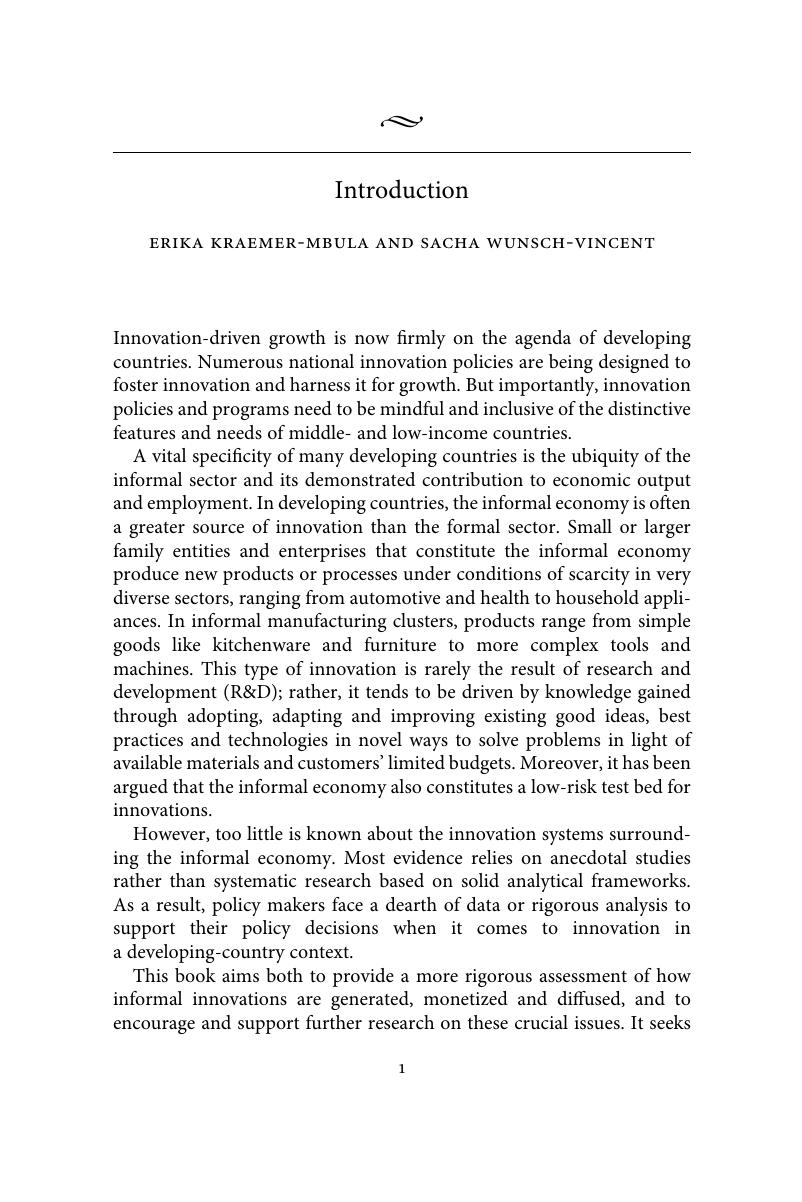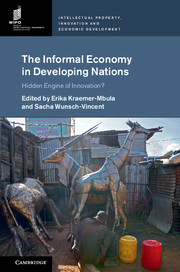Book contents
- The Informal Economy in Developing NationsHidden Engine of Innovation?
- Reviews
- Cambridge and the World Intellectual Property Organization
- The Informal Economy in Developing Nations
- Copyright page
- Contents
- Figures
- Tables
- Contributors
- Foreword
- Foreword
- Preface
- Disclaimer
- Introduction
- 1 The Informal Economy
- 2 Innovation in the Informal Economy
- 3 A Study of the Informal Metalworking Sector in Nairobi
- 4 Informal Manufacturing of Home and Personal Care Products in South Africa
- 5 Herbal Medicine in the Informal Sector of Ghana
- 6 Appropriation and Intellectual Property in the Informal Economy
- 7 Innovation Policy and the Informal Economy
- 8 Formulating an Agenda for the Measurement of Innovation in the Informal Economy
- Book part
- Index
- References
Introduction
Published online by Cambridge University Press: 20 October 2016
- The Informal Economy in Developing NationsHidden Engine of Innovation?
- Reviews
- Cambridge and the World Intellectual Property Organization
- The Informal Economy in Developing Nations
- Copyright page
- Contents
- Figures
- Tables
- Contributors
- Foreword
- Foreword
- Preface
- Disclaimer
- Introduction
- 1 The Informal Economy
- 2 Innovation in the Informal Economy
- 3 A Study of the Informal Metalworking Sector in Nairobi
- 4 Informal Manufacturing of Home and Personal Care Products in South Africa
- 5 Herbal Medicine in the Informal Sector of Ghana
- 6 Appropriation and Intellectual Property in the Informal Economy
- 7 Innovation Policy and the Informal Economy
- 8 Formulating an Agenda for the Measurement of Innovation in the Informal Economy
- Book part
- Index
- References
Summary

- Type
- Chapter
- Information
- The Informal Economy in Developing NationsHidden Engine of Innovation?, pp. 1 - 12Publisher: Cambridge University PressPrint publication year: 2016
References
- 2
- Cited by

